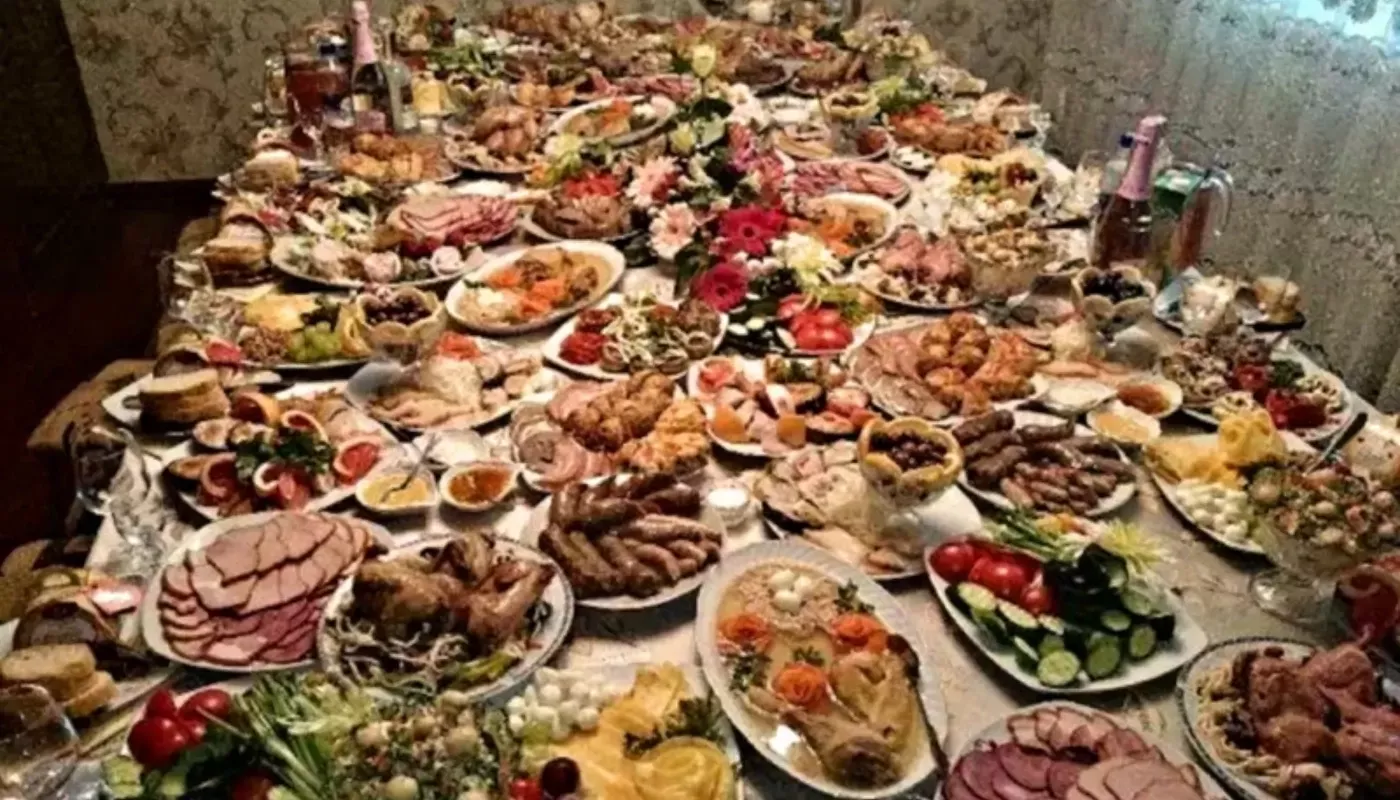
Recently, wherever I look, there are events, celebrations, and gatherings. Just yesterday, when I went to the village, the same thing was happening there. One person says, "I just came in for a moment, we need to go to the 'talk' of the guests," while another mentions that his brother wants to host an iftar in two days. In various groups of "..." the same topic arises – I went to a guest at such and such a place, I'm having iftar, shouldn't we gather or do we have something to discuss? For now, weddings are on hold, but there are still months ahead when weddings will connect with each other. It seems that everyone has nothing left to do but walk from one event to another, from one tea house to another.
It seems that living means your life revolves around events, celebrations, and hospitality. The intention of "May what we earn go to the weddings" actually seems like a good-natured "curse," as if we are spending not only our "cash" but also our time going from one event to another, from one wedding to another. When I first heard it, I was happy that many people were celebrating, having events, and gathering at the same time. But then I thought: is this tradition truly sincere hospitality, or has it already become part of a new culture called "the extravagance of the feast"? ("Cult" refers to the excessive idealization of a certain habit, tradition, or custom, even becoming a goal.)
Our hospitality is a historical value, but what form has this value taken now? In the past, gatherings and iftars were held in a narrow circle, but now they have become widespread. For many, such events are turning into a means of demonstrating social status. "Which restaurant did you have iftar at?", "I hosted iftar for such and such a person," "Today I have a tea house,"
"I have three 'talks' this month," and if you check social media: "I enjoyed the 'pati' at such and such a place," these thoughts...
Is it true hospitality or just show?
These hospitable gestures often lead to social pressure. That is, do such feasts not reinforce the notion that "people are valued based on their extravagance"? Does the abundance of someone's table and the variety of their dishes determine a person's worth? Frankly, this is a serious question for our society, which has historically placed great importance on hospitality. It seems that instead of simplicity and sincerity, a culture of extravagance and waste is growing.
For example, iftar is a time set aside for prayer, a period of spiritual purification. But if it simply turns into a large gathering and a lavish meal, how significant is it from a spiritual perspective?
On one hand, these gatherings are good – people meet each other, communicate, and do not stay at home. However, this tradition seems to be turning into a formal obligation in some cases. If you go to a wedding, you must sit for at least three hours. If you don't, it will be said, "You didn't show respect."
The issue of food at events
In the past, the variety of dishes at gatherings was limited. Now, however, the types of food are increasing. We have lost the distinction between generosity and waste. We think that laying a large table and inviting many people is generosity, but isn't true generosity helping those in need?
Moreover, don't you think this puts a strain on the family budget? Each gathering, birthday, tea house visit – these are significant expenses. If such events become excessive, a person may harm their financial stability.
Some may find relaxation in this, but we don't even consider that it may cause stress and fatigue for others. Especially large events often become a heavy burden for housewives. The constant expectation of guests, the pressure to lay a large table, and the pursuit of an ideal appearance increase fatigue and anxiety.
Artificiality instead of naturalness
Previously, a modest table and sincerity were the most important. Now, extravagance, celebrations held in restaurants, and artificial decorations have become significant.
What about the usual and identical scenarios?
All events are repeating each other: the decorations, the food, even the conversations.
In general, what kind of sincere conversation can there be at these events? If everyone keeps their head down at the table, and there is no environment for people to hear each other, with noise and the clattering of spoons and bowls, not to mention the issue of time.
The benefits of dieting are absent
While feasts can bring people together, they can also add extra weight to them. Most people do not think, "If I don't like it, I don't have to eat," when they go to a wedding or gathering, as it does not align with the culture of hospitality. No one dares to say "I'm not hungry" or "I'm on a diet." Moreover, at some events, there are so many fatty and sweet dishes that even someone who wants to diet cannot restrain themselves.
Additionally, sitting for long periods and moving little at events can lead to obesity. At a place where you are a guest, you cannot walk around, jog, or exercise.
Celebrations have moved to social media
Previously, there was no way to announce that someone was going to visit someone else's home. Therefore, hospitality was less common. In the past, weddings, anniversaries, and various gatherings were only discussed within the family and neighborhood, but now they are widely spread through social media. Nowadays, if someone does not hold an event, it is perceived as a "shortcoming." Conversely, a person who does not talk about their event or celebration on social media may be seen as "not that important." For this reason, many people try to organize events not only because they want to but also to appear on social media. Just as the saying goes, "the melon takes its color from the melon," gatherings are taking place through these social networks. We find time for virtual friends from social networks even more than for relatives. If not, it’s okay if we don’t go...
Are gatherings, tea houses, weddings, celebrations, and reasons to hold them not becoming excessively numerous? When will we find time to live or what does it mean to live?






